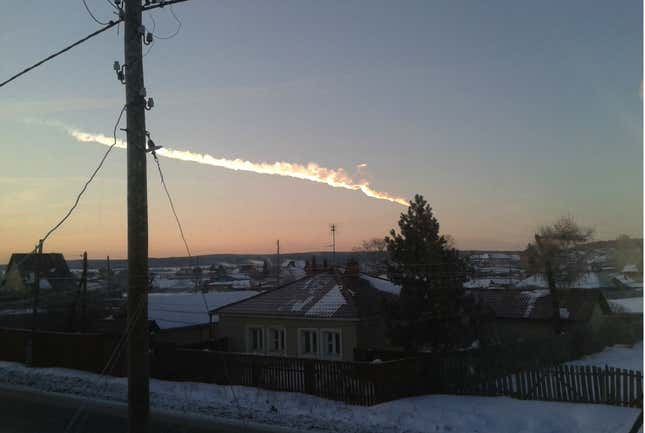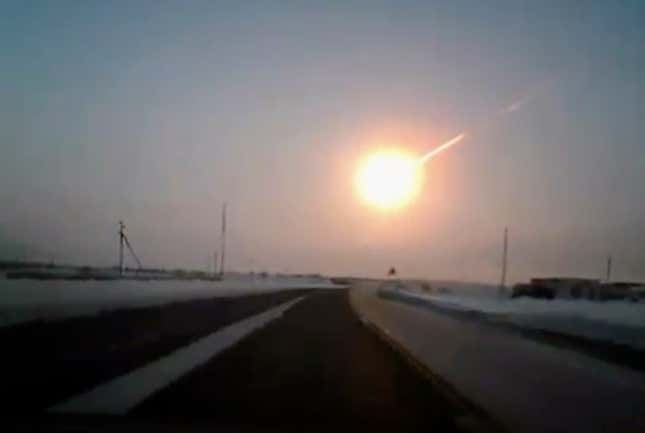Hundreds of people have been injured in and around the Russian city of Chelyabinsk today, by a meteor that plunged to earth near the city, which is located east of the Ural mountains. The photos and footage are remarkable.
“I am scratching my head to think of anything in recorded history when that number of people have been indirectly injured by an object like this… it’s very, very rare to have human casualties,” Robert Massey, deputy executive secretary of Britain’s Royal Astronomical Society, told Agence France Presse.
“There was panic. People had no idea what was happening. Everyone was going around to people’s houses to check if they were OK,” said Sergey Hametov, a resident of Chelyabinsk, about 1500 kilometers (930 miles) east of Moscow, the biggest city in the affected region. “We saw a big burst of light then went outside to see what it was and we heard a really loud thundering sound,” he told The Associated Press by telephone.

The Russian Academy of Sciences estimated that the meteorite weighed about 10 tons and entered the Earth’s atmosphere at a speed of at least 54,000 kph (33,000 mph), shattering about 30-50km (18-32 miles) above ground. Russian officials said that they had already found where the main chunk of the meteorite had fallen, on the outskirts the city.
Russian state media outlet RIA Novosti stressed that the region’s many nuclear power facilities—including the country’s largest nuclear fuel-processing plant—were not damaged:
“All of Rosatom’s facilities in the Urals region are working normally. They have suffered no consequences from the meteorite’s fall,” the national nuclear agency, Rosatom, said in a statement released within hours of the strike, which damaged factories, schools and residential buildings. The most well-known facility in the area, located in the hard-hit Chelyabinsk Region, is the Mayak nuclear-fuel processing plant, where a major accident in 1957 caused some of the worst nuclear contamination in the Soviet Union’s history, second perhaps only to the infamous Chernobyl reactor accident.
There were widespread mobile phone outages as a result of the meteor.
A spokesperson for MegaFon told RIA Novosti that about 15% of the operator’s base stations located in the region were damaged by meteorites. “According to the preliminary data provided by the Emergency Situations Ministry, a meteorite may have caused electric power outages at some facilities and breakdowns of fiber optic networks,” the spokesperson said.

And don’t let your imagination run away with you, but Russian authorities apparently want to form a global group to help warn/disfuse potentially earth-shattering—literally!—future meteor strikes and other “objects of alien origin,” according to the Guardian.
The deputy prime minister, Dmitry Rogozin, Russia’s former ambassador to Nato, called for an international initiative to create a warning system for “objects of an alien origin.” Neither the United States nor Russia has the capability to bring down such objects, he added.



